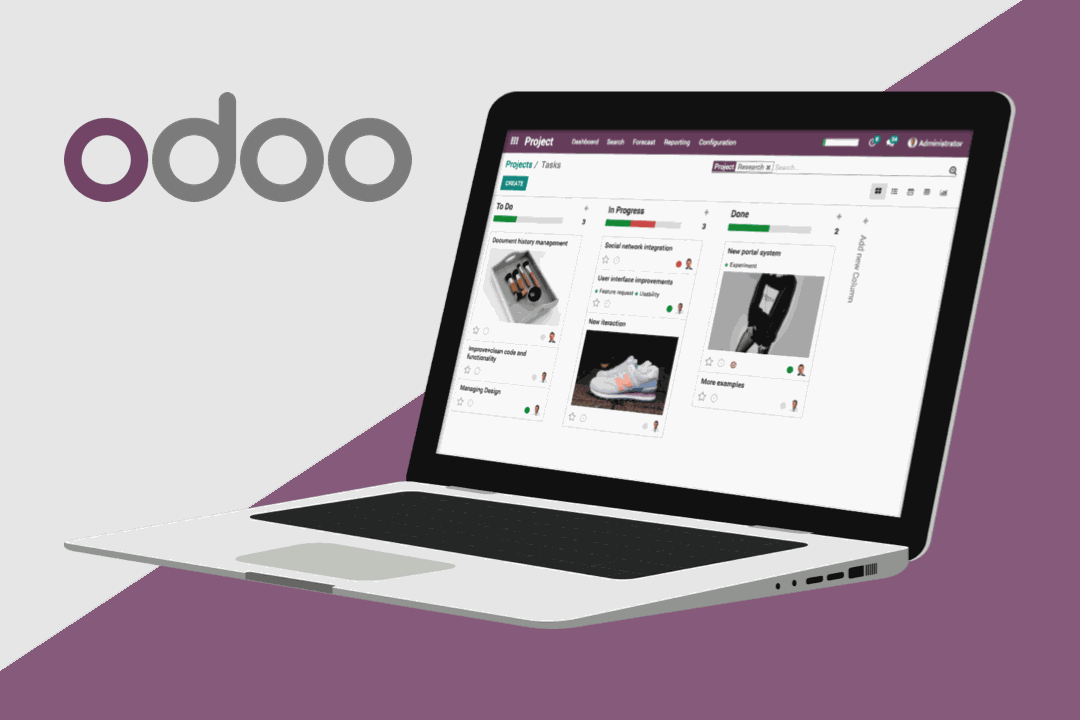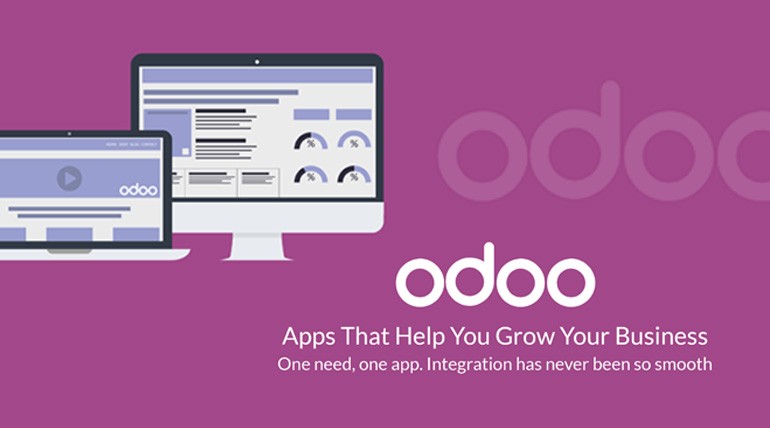Odoo TinyERP
Odoo for Fabien Pinckaers started as TinyERP, one of several projects completed during his university days. It was his most successful project, eventually becoming OpenERP and then Odoo. TinyERP was established in March of 2002 and first published in 2005. After three years on the market, a decision to no longer is small led to the name change to OpenERP. Odoo was named to Deloitte's Technology Fast 50 list of fastest-growing companies in Belgium in 2013, with a five-year growth.
The team agreed to rename the company Odoo in order to concentrate more on the product rather than the operation.
The products were improved to include a variety of business suite applications that were not part of an ERP scheme. Odoo tinyerp
According to Odoo, the company's dedication to staying open source has not changed and will not alter. On the same grounds, Odoo tends to put a premium on management applications such as accounting, inventory, CRM, and other related tools. In terms of product and service growth, renaming signaled a new direction for the company. The applications are built to address the diverse needs of small and medium-sized companies as well as the flexibility and complexity demanded by larger businesses. Odoo, despite being a relatively new entrant in the ERP system for large companies, has made some remarkable progress.
Odoo TinyERP was renamed Odoo ERP due to its expansion beyond the boundaries of enterprise resource planning applications.

Odoo ERP is one of the world's fastest-growing software, with over 5 million users worldwide and over 80 languages available. The most recent Odoo update is Odoo 14.0, which was released in October 2020 and improved the user experience once more. You will learn more about Odoo 14's functionality, as well as technology changes. Tin
Odoo ERP is one of the world's fastest-growing software, with over 5 million users worldwide and over 80 languages available. The most recent Odoo update is Odoo 14.0, which was released in October 2020 and improved the user experience once more. You will learn more about Odoo 14's functionality, as well as the UI and technological changes. Tinyerp, odoo tinyerp, erp
Odoo is available in two editions: Society, which is free, and Business, which costs money. The Community edition's available applications and features change with each version update. However, with the Business version, we have access to all functionality, as well as support and migration services.
With a solid understanding of the two versions and the Enterprise's add-on functionality, we can determine if the paid version is truly necessary for our business. In the blog Odoo 14 Enterprise vs Community, the main differences between the two in the latest version are illustrated.
Odoo pricing is determined by the number of users, applications used, and hosting type. Odoo can handle any number of users and, due to its adaptable nature, is a good fit for small to large businesses. Odoo currently provides three different forms of hosting: online hosting, cloud hosting, and on-premises hosting. The hosting is SaaS (Software as a Service) and is only available in the Enterprise version. Odoo tinyerp
We can access the database from the cloud with this hosting. We can connect to the database from odoo.com through a web browser using our personal credentials. Odoo takes care of database maintenance, and you don't have to think about installation. The standard Odoo apps are permitted, but not third-party apps. Entry to the database would necessitate an internet connection, and customizations are not feasible.

On-premise hosting: in layman's terms, it's local hosting where we can handle our data's installation, maintenance, and security. This type of hosting would necessitate technological knowledge, but it gives us complete control over our servers.
This hosting, which is available in both Community and Enterprise versions, necessitates the installation of a local server to operate the database. Local hosting or on-premise hosting, while requiring specialized technical skills, allows you to configure software and install third-party apps.
- Odoo.sh: this hosting option combines online and on-premise hosting. Odoo.sh's database is cloud-based, and it allows for customizations and third-party software installs. Software as a Service (SaaS) is the hosting type (SaaS). We can appreciate all of the benefits of cloud hosting while still being able to customize and integrate it to suit our unique needs.
Since the end-user has more leverage over the server than Odoo online, there is no need to be concerned about infrastructure. The blog Odoo.sh vs Odoo Online provides a detailed comparison of Odoo.sh and Odoo Online. Odoo will have over 30 main applications in 2021, all of which will be managed and upgraded by Odoo and will be available on all hosting forms. We also have the option of customizing and installing third-party applications in Odoo on-premise and Odoo. sh.
Odoo is an open-source project of over 550 members in 120 countries working to create more applications to meet the changing business needs around the world.
Odoo, while being a multinational organization, ensures local solutions through accredited partners. Odoo also has a partner rating system that allows you to rate your partners based on their service and contributions. Odoo is a trusted suite of business management software for many customers, including Toyota, Hyundai Portugal, and others, with over 5 million users.
Odoo ERP aims to progress with unbelievable provisions for your business needs, without restricting its reach to the ERP system, as its consumer and developer networks continue to evolve. The promise of switching from OpenERP to Odoo was a suite with no limits to the reach and range of its services.
50,000+ companies run Odoo to grow their businesses.
Join us and make your company a better place.


